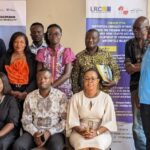 May 5th 2016 marks the 5th Anniversary of the Optional Protocol to the International Covenant on Economic, Social and Cultural Rights (OP-ICESCR). The opening for signatures for the OP-ICESCR was held on 24 September 2009 during the 2009 Treaty Event at the United Nations Headquarters in New York. The OP-ICESCR is an international treaty that allows victims of violation of economic, social and cultural rights, to present complaints at the international level. When people cannot access justice in the courts of their country for violations of economic, social and cultural rights (ESCR), they can bring a complaint to the UN Committee on Economic, Social and Cultural Rights (CESCR). However, their country must first become a party to the OP-ICESCR treaty through ratification or accession.
May 5th 2016 marks the 5th Anniversary of the Optional Protocol to the International Covenant on Economic, Social and Cultural Rights (OP-ICESCR). The opening for signatures for the OP-ICESCR was held on 24 September 2009 during the 2009 Treaty Event at the United Nations Headquarters in New York. The OP-ICESCR is an international treaty that allows victims of violation of economic, social and cultural rights, to present complaints at the international level. When people cannot access justice in the courts of their country for violations of economic, social and cultural rights (ESCR), they can bring a complaint to the UN Committee on Economic, Social and Cultural Rights (CESCR). However, their country must first become a party to the OP-ICESCR treaty through ratification or accession.
Ghana was one of the first of 45 countries to sign the OP-ICESR agreement, but the ratification process has not yet been completed. Ghana should ratify the OP-ICESR so it can continue to protect the economic, social and cultural rights of its citizens. Economic, social and cultural rights embody essential elements for a life of dignity and freedom, including work, health, education, food, water, sanitation, housing, social security, a healthy environment and culture. By ratifying the provision, the OP-ICESCR will provide Ghana with an international mechanism for remedying any infringements on the rights in the ICESCR. The Optional Protocol to the CESCR will also assist Ghana in clarifying , identifying and implementing its obligations to the International Committee of Economic, Social and Cultural rights. To find out more on the OP-ICESR, watch this animated video which tells the story of Lucy, a young girl who has to fight for her right to education when her school closes due to a lack of public funding. Through Lucy’s story, the video highlights that access to justice is key to the full recognition and implementation of human rights.





